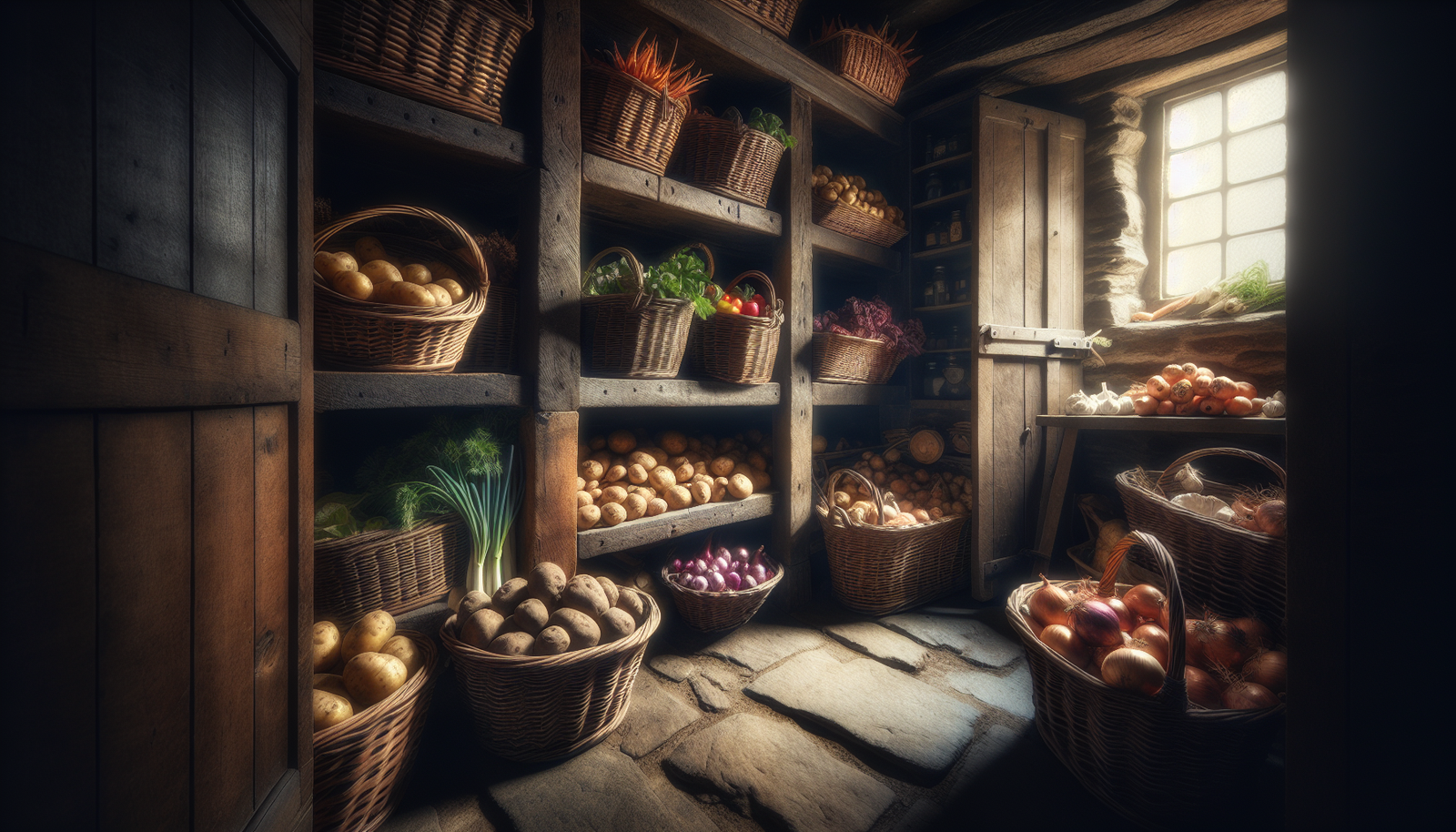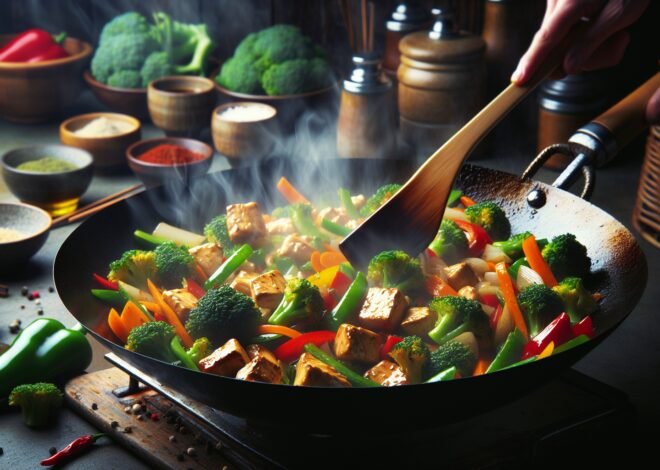
Tips for Storing Root Vegetables and Tubers Correctly
Root vegetables and tubers like potatoes, onions, and garlic require specific storage conditions to stay fresh. In this article, we’ll guide you through the best ways to store these vegetables to prevent sprouting, rot, and flavor loss, ensuring they last longer in your kitchen.
Why Root Vegetable Storage Matters
Root vegetables like potatoes, onions, and garlic form the backbone of countless dishes around the world. Proper storage is crucial to maintain their freshness, flavor, and nutritional value. Without the right conditions, these vegetables can spoil quickly, leading to food waste and unnecessary expense. This section will explore why understanding storage techniques is vital for maximizing the shelf life of your favorite root vegetables.
Understanding the Shelf Life of Root Vegetables
Root vegetables have varying shelf lives, influenced by factors such as temperature, humidity, and exposure to light. Potatoes, for instance, can last several months if stored correctly, while onions have a shorter lifespan. Factors like location and climate also play a significant role. Knowing these differences helps tailor storage methods to each vegetable, ensuring they remain fresh and delicious for longer periods.
Common Mistakes in Storing Root Vegetables
Many people unknowingly make mistakes that shorten the lifespan of their root vegetables. Common errors include storing them in plastic bags, which trap moisture and encourage rot, or placing them near heat sources, accelerating spoilage. Recognizing these pitfalls is the first step in correcting them. By understanding what not to do, you can adopt practices that keep your vegetables fresh and nutritious.
Preventing Sprouting and Rotting
Sprouting and rotting are common issues with root vegetables, often caused by improper storage conditions. Sprouting usually occurs when potatoes or onions are stored in a warm environment, while rotting is often a result of excessive moisture. To prevent these problems, it’s crucial to store vegetables in a cool, dry place and inspect them regularly. By maintaining the right conditions, you can significantly extend their shelf life.
Best Practices for Storing Potatoes
Potatoes are a staple in many households, beloved for their versatility. However, keeping them fresh requires specific storage techniques. This section will guide you through the best practices to ensure your potatoes remain firm and flavorful, ready to elevate any meal you prepare.
Keeping Potatoes in a Cool, Dark Place
Potatoes thrive in cool, dark environments. A cellar or pantry is ideal, as these spaces maintain consistent temperatures and block out light. Light exposure can cause potatoes to turn green and bitter, while too much heat encourages sprouting. Aim for a temperature range between 45-50°F to keep your potatoes in prime condition.
Avoiding Exposure to Sunlight
Sunlight accelerates the deterioration of potatoes, prompting greening and the development of toxic compounds known as solanine. To avoid this, store potatoes in opaque containers or paper bags. These materials block light while allowing the potatoes to breathe, preventing spoilage. Regularly check your storage area for any stray sunshine and adjust your setup as needed.
Preventing Moisture Buildup
Moisture is another enemy of potato storage, leading to mold and rot. Ensure your storage area is dry and well-ventilated. Avoid using plastic bags, which trap moisture, opting instead for breathable materials like burlap sacks. Periodically inspect your potatoes for signs of dampness and remove any affected ones promptly.
Best Practices for Storing Onions and Garlic
Onions and garlic are crucial ingredients in countless recipes, but their storage needs differ from other root vegetables. Proper techniques can ensure they remain pungent and flavorful, ready to add depth to your culinary creations. Let’s explore how to store onions and garlic effectively.
Storing Onions in Ventilated Baskets
Onions require good air circulation to stay fresh. Ventilated baskets or mesh bags are perfect for this purpose, allowing air to flow freely around each onion. Avoid storing onions in the refrigerator, as the cold, damp environment can cause them to soften or spoil. Instead, choose a cool, dry place for optimal storage.
Preventing Mold in Garlic Storage
Garlic is prone to mold if stored in humid conditions. To prevent this, keep garlic in a dark, dry place with adequate ventilation. A hanging wire basket or open paper bag works well, as they keep garlic dry and allow air to circulate. Regularly inspect your garlic bulbs for signs of mold and remove any affected cloves immediately.
Combining Onions and Potatoes—Yes or No?
Combining onions and potatoes in storage is generally discouraged. Onions release moisture and gases that can accelerate the spoilage of nearby potatoes. To keep both vegetables fresh, it’s best to store them separately. If space is limited, make sure there’s enough distance between them to minimize any negative effects.
Conclusion
Root vegetables like potatoes, onions, and garlic require specific storage conditions to stay fresh and flavorful. By keeping them in cool, dark, and ventilated areas, you can extend their shelf life and prevent spoilage. Following these storage tips will ensure your root vegetables are always ready to enhance your meals.
FAQ
How should I store potatoes and onions?
Store potatoes in a cool, dark place with good ventilation. Keep onions in a dry area away from moisture. Avoid storing them in the refrigerator to maintain their quality.
Should I keep root vegetables in the fridge?
Some root vegetables, like carrots and beets, can be refrigerated to extend freshness. However, potatoes and onions store better in a cool, dry place outside the fridge.
How long do root vegetables last when stored properly?
When stored correctly, root vegetables like carrots and beets can last up to several weeks. Potatoes can last a few months and onions up to a month, depending on the storage conditions.
Can I store potatoes and onions together?
Avoid storing potatoes and onions together. Onions release gases that can cause potatoes to sprout and spoil faster.
How do I prevent sprouting in potatoes?
Store potatoes in a dark, cool place and keep them away from onions. Placing an apple with your potatoes can also help reduce sprouting.
What’s the best way to store garlic?
Store garlic in a cool, dry place with ample air circulation. Avoid refrigeration to prevent spoilage. Keep garlic bulbs whole until you’re ready to use them.











